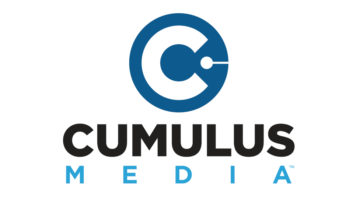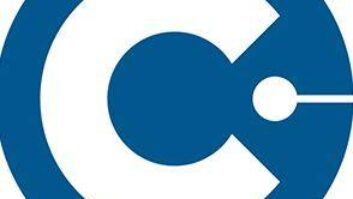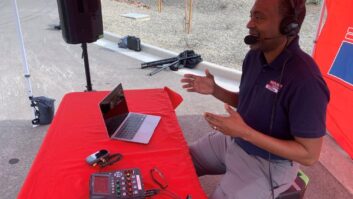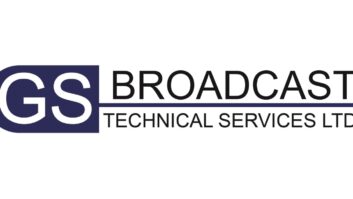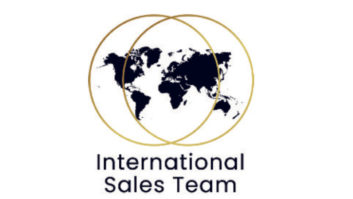A reorganization earlier this year among the top technical positions at Cumulus, the second-largest U.S. radio group, unified broadcast engineering and information technology under the same umbrella. Leading that technical team is Conrad Trautmann.
New CEO Mary Berner is tasked with turning around the financial picture at the company, which is approximately $2.5 billion in debt. Her moves have included many executive level changes in sales and programming; and her effort to consolidate technology services at Cumulus is viewed by some as ambitious.
Cumulus, which operates 454 AM and FM radio stations in 90 markets across the United States, also owns radio network Westwood One and manufacturer Broadcast Software International.
Trautmann’s promotion was part of a larger series of personnel changes within engineering and IT. Pete Stefanske was promoted to VP of information systems, while Marsha Reid Rhodes was upped to manager, telecom. Both report to Trautmann, who succeeded longtime SVP of Broadcast Engineering Gary Kline, who now has his own consultancy. Eric Wiler became SVP of technology and broadcast operations for Westwood One.
In an email to Cumulus employees explaining the changes, Berner wrote that Trautmann “is not only a tested leader but as an experienced collaborator and expert in his field, he is the ideal person to oversee the consolidation of these two functions. Conrad has a deep background in technology and broadcast engineering …”
Trautmann becomes SVP of technology and operations after a long tenure at Westwood One. He most recently served as chief technology officer and SVP of technology and network operations at the network.
Some months into the Cumulus technology department overhaul, Radio World asked Trautmann about the transition process to date and challenges ahead.
Radio World: Describe the scope of what you oversee at Cumulus.
Conrad Trautmann: Broadcast engineering of the owned-and-operated stations as well as Westwood One. All of IT support, so the wide-area networks and desktops. Also software development for our internal software products for traffic and music scheduling. Telecommunications and capital budgeting. The operations part of my title includes a few things outside of technology, like real estate and leases. I also oversee the centralized traffic department based in Atlanta that schedules commercial logs for some of our smaller markets.
RW: How about Broadcast Software International?
Trautmann: Yes, all of our automation products are rolled in. So we have Westwood One’s STORQ automation platform, and BSI’s Op-X and Simian automation products. We have tried to look at combinations of STORQ and the BSI products. Eric Wiler is overseeing all of that for us. He took over my job as head of the network’s engineering and technology. So the folks at BSI report to Eric along with the team that supports STORQ. We are making more of an effort to consolidate some development and make the best use of people resources from a support point of view and development.
RW: What’s the technical hierarchy at Westwood One now?
Trautmann: All of the network engineers and techs report to Eric Wiler. Eric reports to Charles Steinhauer, COO of Westwood One, with a dotted line to me. The technology department at the network has about 70 to 80 people.
RW: How about on the Cumulus broadcast side?
Trautmann: We have promoted Martin Stabbert, Yancy McNair and Michael Gay to be vice presidents of engineering. Martin and Yancy have oversight of the radio station group, and they kind of split the country in half. That’s operations in 90 cities. Michael is VP of special projects. Other “direct reports” to me include Brian Hicks, director of real estate, Jason Hutchinson, vice president of information systems, and David Beckerman, VP of business systems and application development.
RW: Mary Berner has said you are the ideal person to oversee the consolidation of the two functions of broadcast engineering and IT at Cumulus. How is it going so far?
Trautmann: We have merged corporate IT for Cumulus and network IT for Westwood One. There was so much overlap in those two departments to begin with that it has gone very well. Both staffs are happy to be on the same team. The communication is much better now that they are getting consistent and coordinated direction. It’s been very positive for us overall. Then the broadcast engineers on the owned-and-operated side, which really didn’t interface at all with the network, are now being utilized for network events. We are actually having some of the guys at the stations help with network events, so we now have a much deeper talent pool to pull from. And finally, I have been able to pull together our regional team of engineers. I’m still looking for a couple but I’ll end up with a total of eight.
RW: Are you a believer in centralized or decentralized decision-making?
Trautmann: I think the word for my management style is collaborative. I like to get everyone’s buy-in on what we are trying to accomplish. I seek people’s opinions, which results in having a bunch of smart people guiding projects. Mary Berner has often called the old Cumulus way “command and control,” with “from the top down” thinking. We are being much more collaborative in our decision-making now.
RW: What is your impression of Cumulus’ technical operations at the station level since you took over in February?
Trautmann: We have some incredible people working for us. I haven’t been to many of our cities yet to access the technical plants. I have been to Chicago and Los Angeles. I’m letting our regional guys handle their markets. We are in good technical shape. Like any company in radio right now, it would be nice to throw more money at transmitters and such, but we have what we need right now to be on the air, and I think that is good.
RW: How has Berner’s turnaround plan impacted technology implementation at Cumulus and are there some positives you can point to so far?
Trautmann: Clearly, Mary Berner is getting a ton of traction. From a company point of view, I think people are proud and happy to be working here. I’m not sure if that was the case before her arrival. We have created a capital plan for technical. We basically solicited the markets for their requests. We didn’t say no to everything, but we have organized all of those requests into buckets of priorities. We often use the concept of highest and best use. We have prioritized the project requests [for] the highest and best use of our capital funds. The regional engineers and VPs all had a role in the process. We have had to defer some capital projects until next year, which isn’t an unusual thing. We did communicate with everyone so they would at least know why a request was denied or delayed. This year’s cap-ex took longer than we wanted because we were sorting out how to do it. I’m optimistic that if we can stay on track we will be in much better shape on our capital budgets and plans in the next few years.
RW: Cumulus has announced pending agreements to sell AM tower sites in Los Angeles and Washington [KABC and WMAL] to raise cash. Do you expect to see more of that; and has Cumulus followed the trend of selling off FM towers?
Trautmann: In both of those situations the dollars were compelling enough for us to do that. We are not actively out there trying to sell properties. We had inquiries from outsiders interested in developing those properties. In those cases the radio stations are staying on the air. We are just moving them. As for FM towers, that has been discussed, but we are not actively pursuing that route. Mary Berner is more focused on using what we have more efficiently and not selling off assets.
RW: What kind of cool technological projects are underway at Cumulus?
Trautmann: We are building new network traffic software. A lot of other radio groups have done this. Hopefully we can integrate it with all of our radio station software. It will make the integration between the network and stations better. That’s an IT and software development-type project. We are also planning to port our Westwood One STORQ systems over to the Wegener receiver platform. So instead of sending out a computer for a station that will be a STORQ station we can send them a Wegener receiver. We really are not focusing a ton on new development. We are more interested in making sure what we have works.
RW: Are there any major studio projects to report?
Trautmann: We are moving stations into the NBC Tower in Chicago. The studio build is expected to be done by early August. There are three FM and one AM stations making the move. And of course the Los Angeles KABC project will be another big one for us. They are moving into the Westwood One facility there. And WMAL(AM) in Washington is going to be diplexed into an existing array.
RW: Where are you based and what’s a typical day in the office like?
Trautmann: I’m based in New York City. In fact, I haven’t even changed offices. I’m still in the network building on West 42nd Street. I have a lot of back-to-back meetings to make sure projects are staying on track. I’m not traveling a whole lot. I meet with Mary Berner about twice per week. She is in Two Penn Plaza.
BACKGROUND
Conrad Trautmann, 52, has overseen a large number of special events and projects through his tech career.
He studied electrical, electronic and communications engineering technology at Farmingdale State University of New York, and was for six years also a machinist’s mate in the U.S. Coast Guard. He began his work in broadcasting in the early 1980s as chief engineer at WEBE(FM) in Westport, Conn. He later worked as market director of engineering for Cox Radio’s Long Island, N.Y., and Syracuse, N.Y., clusters.
A 15-year veteran of Westwood One, he spent much of his time at the network overseeing technical aspects of coverage for the Olympics, Grammy Awards and NCAA basketball.
Trautmann lives in Trumbull, Conn. He and his wife Dianne have two daughters.





